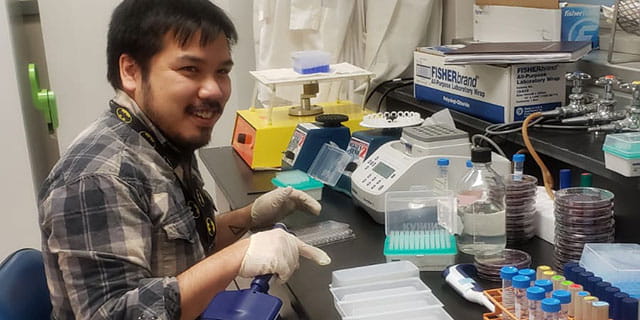Education & Training
Learn More About Our Education Components

Our fellows receive comprehensive training through direct patient care and extensive clinical and research training. Our fellowship program emphasizes clinical training during the first year and the second and third years focus on research training in clinical epidemiology, basic science or translational research.
Program Curriculum
Year One
During the first year of the fellowship, the trainee will spend the majority of his or her time in clinical arenas. The goal of the clinical experience is to provide the trainee with exposure to common and uncommon infectious diseases, in both immunocompetent and immunocompromised hosts and in surgical patients. With the oversight of experienced attending physicians, fellows care for patients on the general infectious disease consultation service or the immunocompromised infectious disease consultation service. Additionally, fellows will see patients in our busy outpatient clinic. Specific details about clinical training are included in the clinical services section.
The inpatient and outpatient services are supported by both the Department of Infection Control and the Antibiotic Stewardship Program. With this support infrastructure trainees are expected to develop expertise in:
- Judicious use of antibiotics
- Appropriate use of diagnostic testing
- Infection control and hospital epidemiology
Fellows will meet with the fellowship director and associate director multiple times during the first year to discuss research options and interests in order to identify a research mentor from among the faculty of the division, other divisions, or Case Western Reserve University School of Medicine. Ultimately, trainees are expected to identify a mentor in their area of research interest by the conclusion of the first year.
Years Two and Three
The second and third years of fellowship training will be focused on research in a protected environment by minimizing concurrent clinical responsibilities.
Second and third year fellows will have some clinical responsibilities, including:
- 12 weeks a year of inpatient consult service
- Outpatient clinic in general infectious disease, HIV and travel medicine outpatient clinics


